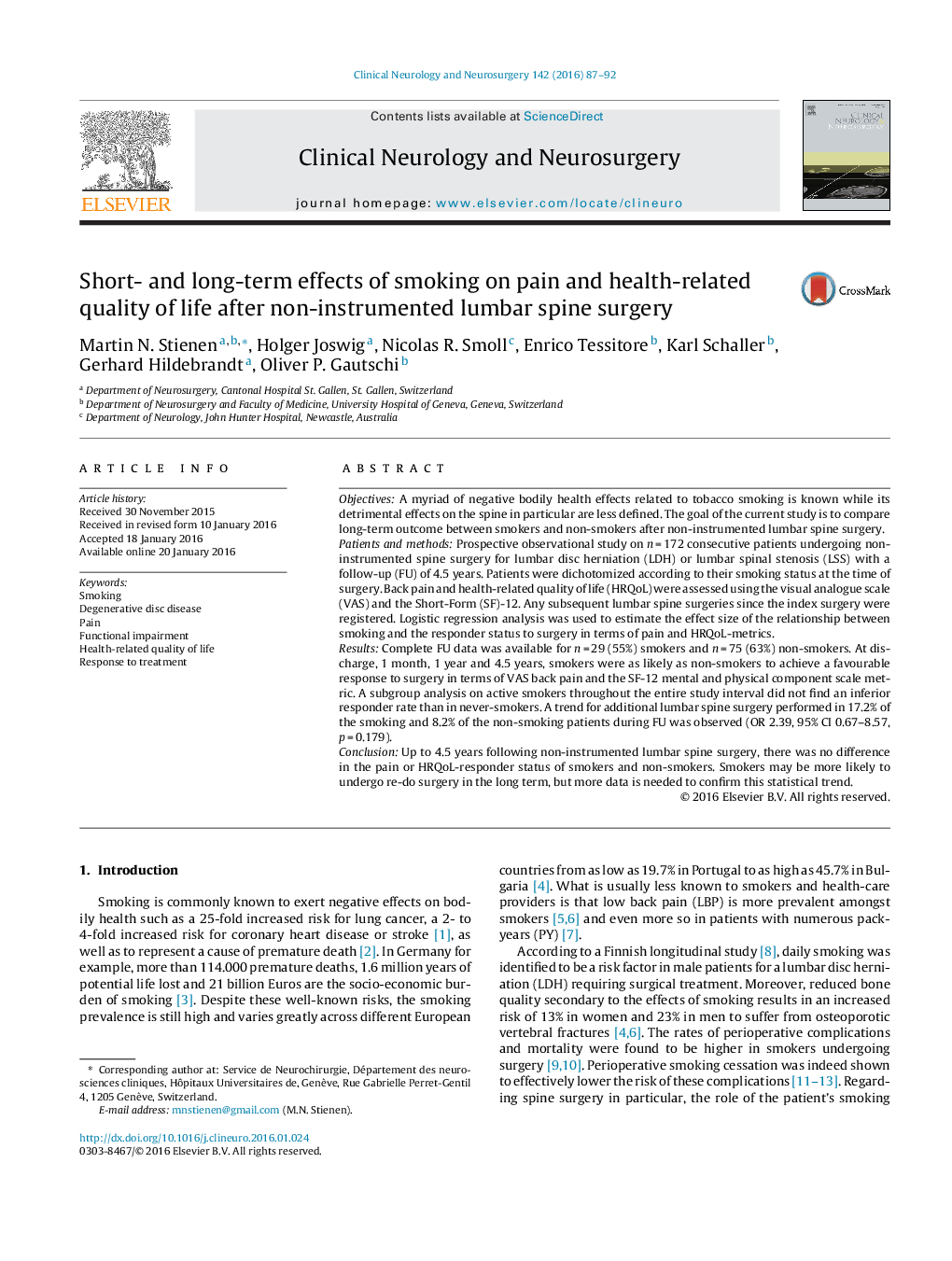| Article ID | Journal | Published Year | Pages | File Type |
|---|---|---|---|---|
| 3039556 | Clinical Neurology and Neurosurgery | 2016 | 6 Pages |
•The rate of surgical complications was not increased in smoking patients.•The response to lumbar spine surgery was similar for smokers and non-smokers.•This was true up to 4.5 years postoperative on various pain- and HRQoL-metrics.•The data suggest that smokers undergo re-do surgery more often in the long term.
ObjectivesA myriad of negative bodily health effects related to tobacco smoking is known while its detrimental effects on the spine in particular are less defined. The goal of the current study is to compare long-term outcome between smokers and non-smokers after non-instrumented lumbar spine surgery.Patients and methodsProspective observational study on n = 172 consecutive patients undergoing non-instrumented spine surgery for lumbar disc herniation (LDH) or lumbar spinal stenosis (LSS) with a follow-up (FU) of 4.5 years. Patients were dichotomized according to their smoking status at the time of surgery. Back pain and health-related quality of life (HRQoL) were assessed using the visual analogue scale (VAS) and the Short-Form (SF)-12. Any subsequent lumbar spine surgeries since the index surgery were registered. Logistic regression analysis was used to estimate the effect size of the relationship between smoking and the responder status to surgery in terms of pain and HRQoL-metrics.ResultsComplete FU data was available for n = 29 (55%) smokers and n = 75 (63%) non-smokers. At discharge, 1 month, 1 year and 4.5 years, smokers were as likely as non-smokers to achieve a favourable response to surgery in terms of VAS back pain and the SF-12 mental and physical component scale metric. A subgroup analysis on active smokers throughout the entire study interval did not find an inferior responder rate than in never-smokers. A trend for additional lumbar spine surgery performed in 17.2% of the smoking and 8.2% of the non-smoking patients during FU was observed (OR 2.39, 95% CI 0.67–8.57, p = 0.179).ConclusionUp to 4.5 years following non-instrumented lumbar spine surgery, there was no difference in the pain or HRQoL-responder status of smokers and non-smokers. Smokers may be more likely to undergo re-do surgery in the long term, but more data is needed to confirm this statistical trend.
